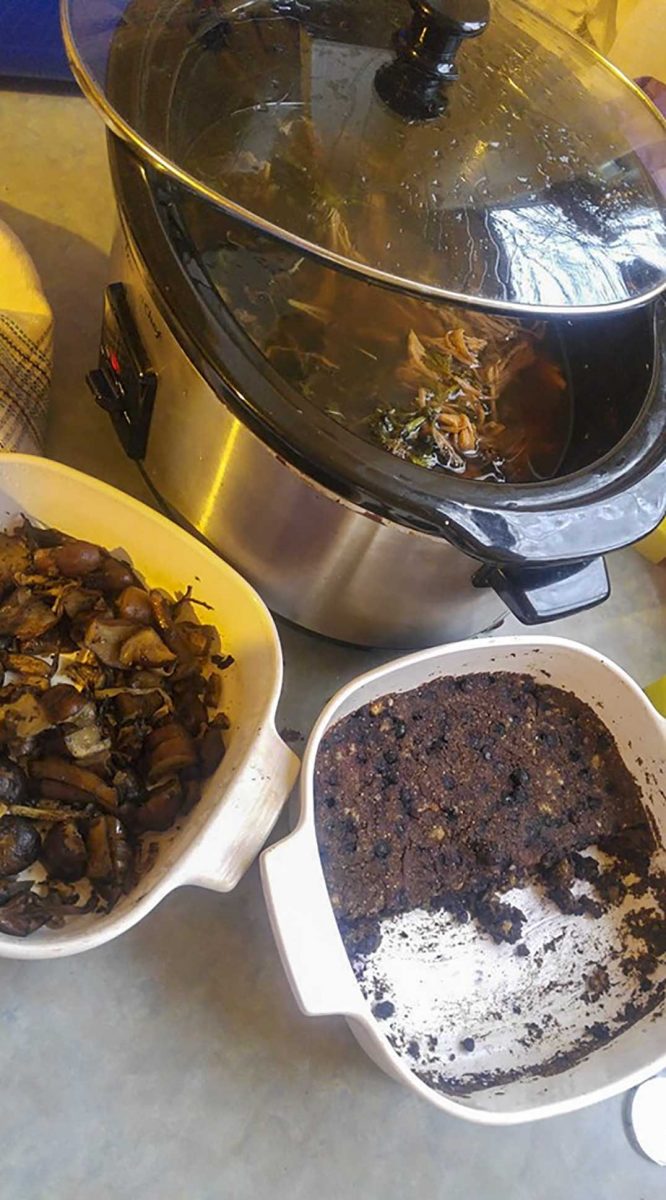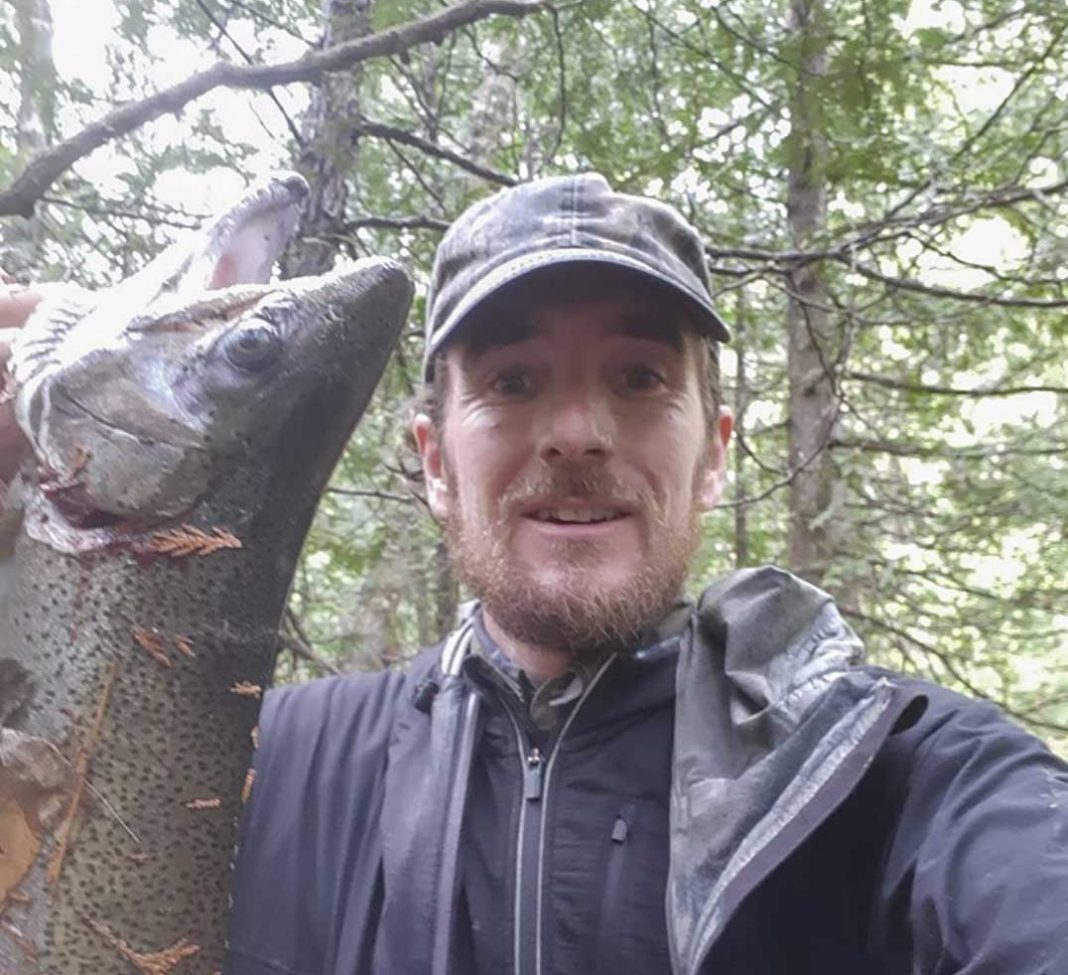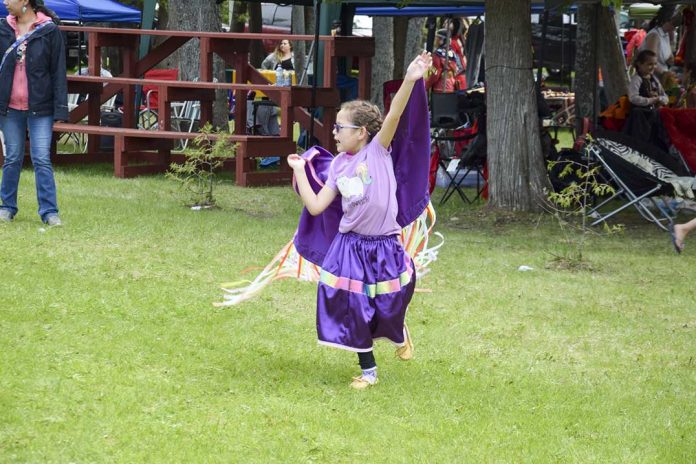Couple deals with emotional lows, more travel
EDITOR’S NOTE: The Expositor will be checking in regularly with this couple who have ties to Manitoulin Island as they embark on their Big Wild Year challenge. This is the fifth update since they began.
NORTH BAY – Foraging work has jumped into top gear for Jeremy St. Onge and Delphanie Colyer as they work to make the most of the spring season while also providing their own sustenance during the warmer months.
“We have a tough time deciding; there’s so many things to pick and chase right now,” said Mr. St. Onge.
For the entirety of 2019 during what they are calling their ‘Big Wild Year,’ the couple will only eat wild-foraged foods such as indigenous plants and animals they have hunted. Mr. St. Onge is an environmental studies professor at Canadore College and Ms. Colyer is a nurse with roots in Wiikwemkoong.
An exciting change of pace for Mr. St. Onge came early in the month when he supervised a field camp for his students in Grenada.
“That was challenging too because being out of the country, travelling in a different part of the world, I was doing the best I could to forage,” he said. “That was mainly picking fruits from trees. I ate a lot of mangoes, at least five a day. I had eight bananas a day and one to two coconuts a day.”
He tried to keep up with his meat intake by taking advantage of the local fish populations but found it unsustainable. Mr. St. Onge had to turn to a local market to find some items such as plantains and breadfruit. At one point, he had the chance to eat a lionfish, an invasive species in the area.
“I was able to dry and bring back a lot of coconut meat, dried mangoes, sea salt, citrus bergamot, almonds, tamarind pods—I came back with a pretty full suitcase,” he said.

“It was real exciting. That first piece of mango I had was so unbelievably delicious, but then it made me miss fruits,” said Ms. Colyer.
Her time at home while Mr. St. Onge was away was less of a positive experience. The weather didn’t co-operate with a few harvests she was hoping to conduct such as a sucker fishing trip, and she discovered a favourite property that was once full of numerous edible species had been destroyed.
Those following this series closely will remember a similar thing had happened once this year already, as noted in last month’s update.
“I was more than disappointed. I was pretty heartbroken—it was all cut down and torn up, it was so sad,” she said. That property had given her wild grapes, blackberries, shepherd’s purse, wintercress, burdock root, nettles and raspberries.
“I was really depressed,” she said. “I kind of just sat in the house until Jer got back. I lost a lot of weight (seven pounds) that week.”
Fortunately, a friend wanted to do a trade and offered moose ribs and fish in exchange for porcupine quills and feathers Ms. Colyer had collected.
“I ate all that and it kind of perked me up, but when Jer came home he got me back on track for collecting things,” she said.
“This is definitely not a fun adventure solo. It made a big difference to have him back home and get back to doing things together.”
The hunting prospects look promising at the moment. They have made note of bear tracks and a couple of raccoons close to a trap they have set and also recently went to Haliburton for turkey hunting with a gentleman they met on Instagram.
“We almost got one to come in; it was exciting to hear one gobble back. That was a lot of fun,” said Ms. Colyer. “We also picked leeks and hit the motherlode of morels on that trip. That was like medicine because I was feeling pretty bummed out because of all the little setbacks. Now I feel reinvigorated.”
Ms. Colyer said she was more tempted during this tough phase to give into cravings than she has been since the start of the challenge, but thanked her stubborn personality for guiding her through.
Although they didn’t successfully hunt a turkey, on the way to the airport for Mr. St. Onge’s trip they spotted a fresh roadkill turkey that they salvaged. They cooked it up as a special treat upon Mr. St. Onge’s return.
Mr. St. Onge’s weight has continued to drop. At latest measure, he was down to 155.4 pounds. The two say they are not quite sure how their weights will change as they continue into the more active season where their demands for foraging increase exponentially. They couple said they planned to check in with the doctor relatively soon to get an update on their health.
The foraging at home has been rather successful so far this spring. They now have 80 cups of blanched leeks frozen in their freezer alongside several bulbs. They harvested about as many fiddleheads as last year as well as dandelions and other greenery.
“It’s always really fun and exciting to go out and collect them all and that might not take a big quantity of time, but you get home and there’s hours of processing,” said Ms. Colyer.
Mr. St. Onge added that he thought they were on track for packing away enough food for the coming winter. They both agreed that planning their harvesting in advance was crucial to maximize output.
“People assumed the winter would be real hard, but we had everything in the house,” said Ms. Colyer. “Now we realize how much we have to hustle. It’s eye-opening to think about what goes into food,” she said, adding that she has a new appreciation for how important agriculture has been to humanity.
The couple hopes to soon get their hands on some catfish and stock their freezer with their possession limit.
“They’re really meaty and have got a good quantity of fat, and they’re real tasty,” said Ms. Colyer.
Ms. Colyer and Mr. St. Onge will be travelling to Michigan this month for the Great Lakes Foragers Gathering. They have been actively strategizing how best to pack for the five-day trip while maintaining their diet. They have also been asked to give the keynote address at the conference.
“It’s just mind-boggling because some other great speakers are going to be there who’ve published books about foraging, including Jer’s favourite, Daniel Bayer,” said Ms. Colyer. “It’s a pretty big honour to be asked to do the opening address because we feel like we’re pretty novice, intermediate maybe, but we are doing something to the extreme that’s not been done.”
One thing that is fresh in their minds is the presence of ticks, especially given recent news that a tick tested positive for Lyme disease within the Sudbury health district boundaries.
“That’s something else to think about when doing this stuff,” said Ms. Colyer. “It kind of speaks to the bigger things about how the environment and climate change all has an effect on this kind of lifestyle.”
To follow Ms. Colyer and Mr. St Onge’s Big Wild Year, you can view their updates at Facebook.com/BigWildYear. The Expositor will be checking back with the two throughout the year to share their experiences in this unique endeavour.





